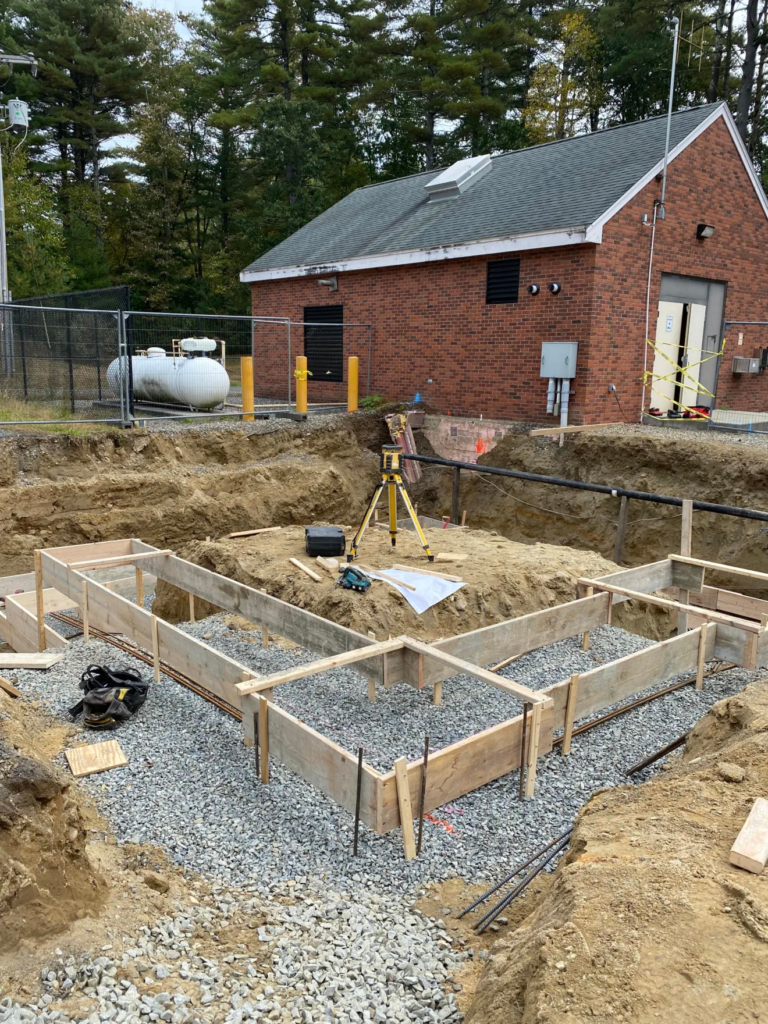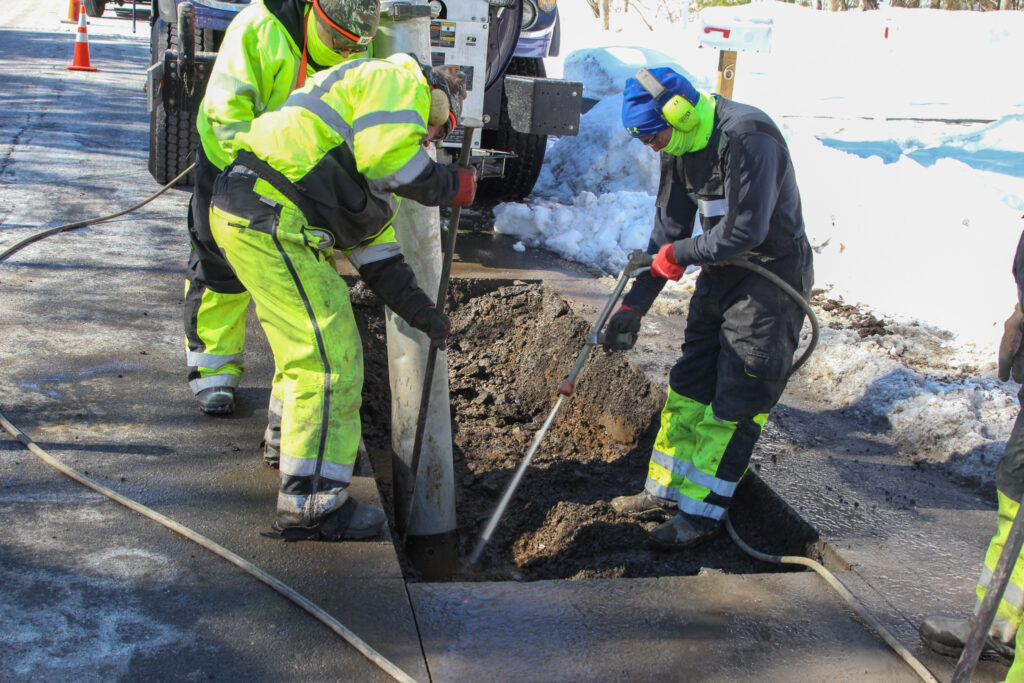
Construction of the PFAS filtration system at Well #6 began in October 2023.
The town is hosting a meeting Thursday evening with updated information about a group of chemicals known as PFAS (perfluoroalkyl and polyfluoroalkyl substances) and the town’s remediation efforts in response to concerns over PFAS in drinking water over the past two years.
Select Board member Shahidul Mannan has been studying the issue of PFAS for the past two years. In September 2023, he proposed a Town Clean Water/PFAS Remediation Advisory Council to the Select Board to address community concerns about these synthetic chemicals that were developed as coatings to protect consumer goods from stains, water and corrosion. The proposal for the advisory committee has lingered on the Select Board agenda as a future action item for months, sidelined due to other town crises.
In a May 27 interview with the Independent, Mannan said he was hopeful that Thursday’s forum at the Hopkinton Senior Center (6-8 p.m.), as well as his call for an advisory council, will allow residents to express their concerns and learn about the town’s remediation efforts.
“I’ve been concerned about this issue since I first heard about it in early 2022,” Mannan explained. “We found it in one of the town’s wells [Well 6]. As I was diving into researching it, I learned about its adversarial health impacts.”
PFAS have been known as “forever chemicals” because some don’t degrade naturally and are believed capable of lingering indefinitely in the environment. As he learned more about PFAS, Mannan called PFAS “all-pervading.”
“There are so many ways in which PFAS have entered into our ecosystem and continues to contaminate our water,” said Mannan. “This made me very concerned, because clean water is a fundamental right.”
Added Mannan: “As town community leaders, we have an obligation to look at this strategically and tactically as to how we can solve it, and then share that information with the community.”
He noted that one source of contamination is likely to be the aqueous film-fighting foam used at the former state firefighter training facility that was located near the well. The foam, which contained PFAS, was first used in the 1970s on oil and gasoline fires.
Mannan said he discussed a remediation effort for Well 6 with Norman Khumalo, the former town manager, over the past couple of years. In 2022, Annual Town Meeting approved funding a plan to connect to the Massachusetts Water Resources Authority via a partnership with Southborough at an estimated cost of $25 million.
The design plan for the MWRA connection now is “about 30-40% done,” according to Mannan.
Construction on a filtration system at Well 6 began in October 2023 after 2022 Annual Town Meeting supported funding this filtration system.
Said Mannan: “It just went live a couple of weeks ago.”
“The latest results there show the PFAS concentration of 0-4 [parts per trillion],” Mannan shared, noting that this is the target rate for the well.
In a message to the Independent Thursday, Mannan clarified that “the upgraded well is ready for training purposes but actual go live is in fall post DEP testing.”. Target will be to be within 0-4ppt
The current Massachusetts regulations, which established a PFAS concentration safe limit of 20 ppt are less stringent than the new federal regulation of 4 ppt established by the Environmental Protection Agency on April 10.
“This is a global problem,” Mannan stressed about PFAS. “Even the EPA is looking at more research to really firm up their data.”
If the allowable concentration of PFAS in the town’s well water is lowered, that would significantly impact the town’s financial capability to remediate it. In 2021, he said the estimated cost of improving all eight town wells was $20 million-$30 million.
Mannan suggested researching federal funding opportunities and state grants, one of the goals of the advisory council he has proposed.
Mannan developed a framework for the Town Clean Water/PFAS Remediation Advisory Council in 2023. According to the proposed framework, the council’s mission “is to ensure the availability of clean and safe water resources for all residents, to address PFAS contamination and to foster collaboration among stakeholders in the pursuit of effective solutions and sustainable practices.”
The council would include the town manager and DPW Director Kerry Reed. Liaisons from the Select Board, the Planning Board, the Department of Public Works, the Board of Health, the Sustainable Green Committee and the Board of Assessors also would participate. Experts with legal, environmental, public advocacy and public health expertise would be encouraged to join, as well as academic researchers and members of community organizations.
Once established, the council will report its findings regarding water quality assessment, potential mitigation strategies and ways to educate the public to the Select Board.
Mannan said he hopes the upcoming forum will allow residents to express their concerns and learn about what the town has been doing to improve water quality, including the recent replacement of water mains. Residents’ concerns will be brought before the council, which Mannan said he hopes will be approved by the Select Board soon.
“We need to have closer monitoring of things,” Mannan said of his rationale for creating the committee. “We need to do it in a comprehensive, planned way as a roadmap. We want to make sure we’re spending money with a thoughtful, long-term end in mind.”
The commission will have the time and comprehensive knowledge to examine the water quality situation that town entities separately do not, he explained. He noted that residents have expressed concerns about PFAS that should be addressed with “clear and transparent communication.”
“It’s about getting everyone’s hands together and making sure that the residents’ voices are included,” said Mannan. “To me, the residents are the most important because they are most directly impacted by both the water quality and the impact to their taxes. Through this body’s input, there will be no surprises to the residents or a ‘gotcha’ moment for anyone.”



















0 Comments